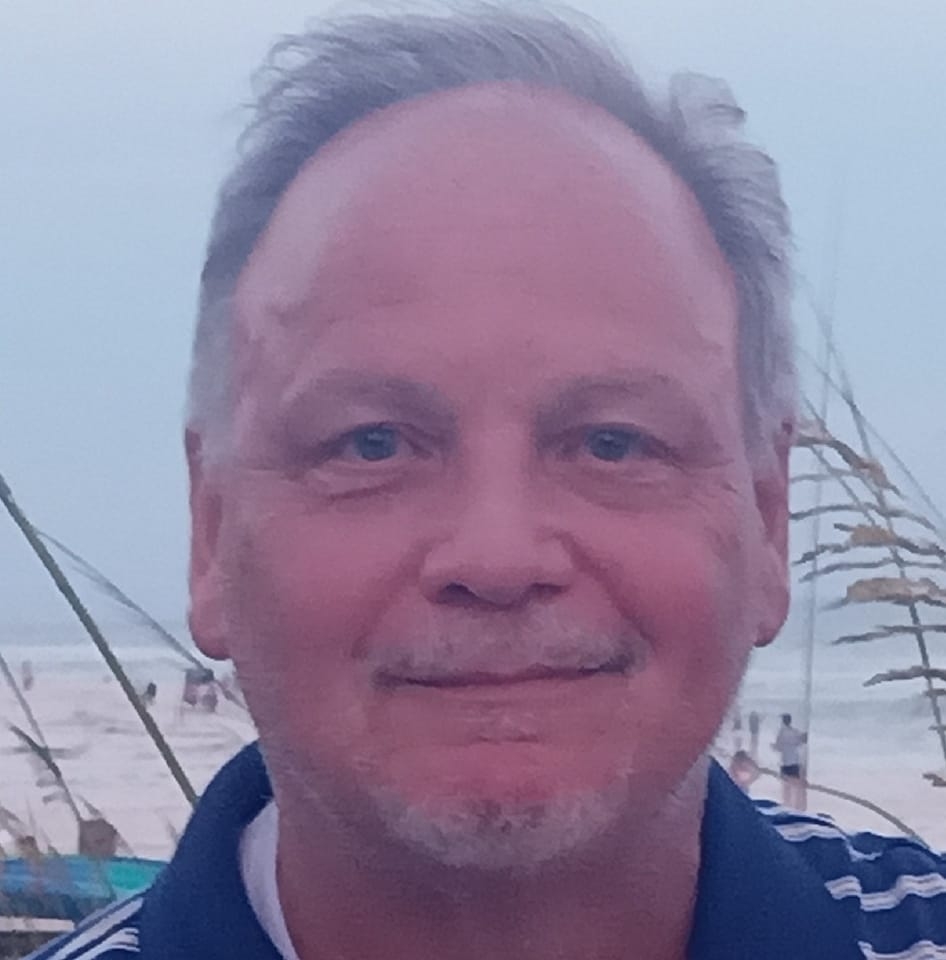My breast cancer was discovered while watching television in bed and cuddling with my wife, Vickie, who noticed a lump and asked how long I’d had it. I was unaware that I had a lump, although my nipple was inverted for several months to a year prior. She said that I needed to have our doctor look at it next time I visited him. Several weeks later, I went for the flu and forgot about my breast. Vickie was not pleased with me at all and kept on me to get it checked. Next visit, about a month later, my primary care physician examined the lump and started the wheels turning on my first mammogram.
After undergoing a mammogram, ultrasound and then a biopsy, I knew the possibility of breast cancer was substantial. When the call came, I was numbed, but not shocked. My diagnosis was confirmed in May 2016: Stage 1 ductal carcinoma in situ in the right breast, tumor 1.7 cm x 1.0cm. I was 59 years old.
My family was great! Everyone was concerned, supportive and optimistic. My wife of 39 years, Vickie, was exceptional through all of this. I felt so bad that I was in Iowa on a work assignment when the biopsy results finally arrived. It was five difficult days for both of us being hundreds of miles apart. My friends and co-workers were incredibly supportive. Calls and visits during the recovery period were very valuable. Many, like myself, were not aware that breast cancer effects men too. I told my wife for years that I am a one in a million kind of guy…my oncologist corrected me and told us that I was only one in 1250.
I underwent a right-side mastectomy and the removal of 27 lymph nodes. Four rounds of chemotherapy followed. I was blessed with a great oncologist who educated me about the process and coached me on how to tolerate the side effects. Gin-Gin soft ginger candies were a staple to fight off the nausea. While I had the expected hair loss, and the nausea never progressed to vomiting, the flatulence produced from the chemo was beyond belief. And chemo brain or chemo fog was a real thing for me. My wife humorously stated that it was nice after almost 40 years of marriage that she was the “smart” one for once. The surgery was predictable, and the chemo was manageable. The biggest challenge I now face daily is Lymphedema and the constant management of the swelling. Compression shirts, lymphedema sleeves, etc. are a permanent part of my wardrobe.
Waiting for the genetic testing results was far worse than waiting for the results of the biopsy. I have three adult children and six siblings. Fortunately, the results were favorable for me.
I’m an Education Support Manager, and conduct food service training, assist with training and on-boarding of new trainers and consultants, special projects and maintain our training libraries for my company. I returned to work about a month after the final session.
I want people to know that breast cancer in men can happen. Every day I wear a lapel pin with a pink and blue ribbon. I explain to others what the colors signify. Each training session I conduct contains a PSA about Male Breast Cancer and a request for everyone present to share the information with the men they know and care about. Don’t let men be ignorant, procrastinate or be embarrassed. Teach them how to check themselves and to stay vigilant. Let’s help the others get early detection, treatment and support. Educate…Educate…Educate. Finally, the Male Breast Cancer Global Alliance should be congratulated for all the good work they do to make people realise that this disease does not discriminate when it comes to gender.

